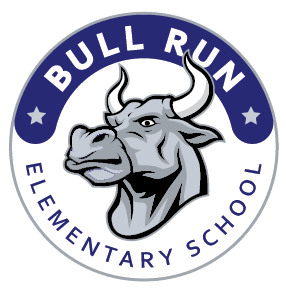2024-2025 School Innovation and Improvement Plan
School Innovation & Improvement Plan
- 2024-2025
- Bull Run Elementary School
- Region 4
- James Marotta, Principal
English Language Arts Strategies
Outcome
- By June 2025, 70% (an increase from 65%) of G3 students will be reading by 3rd Grade (SOL).
- By June 2025, 60% (an increase from 47%) of Students with Disabilities in G3 will be reading by 3rd grade (SOL/VAAP).
- By June 2025, 45% (an increase from 33%) of Multilingual Learners in G3 will be reading by 3rd grade (SOL/VAAP).
- By June 2025, 75% of students will meet Spring reading screener benchmark, an increase from 62%, as measured by LLS/VALLSS/iReady.
- By June 2025, 75% of students in Grade 3 will be reading on-grade-level (pass Grade 3 Reading SOL), an increase from 65%, as measured by Grade 3 Reading SOL (unadjusted) score
Strategies
- Improve daily, systematic, explicit instruction in phonological awareness, phonics, and morphology by using the new core curriculum.
- Increase teacher content knowledge of evidence-based literacy instruction aligned with science-based reading research to improve implementation of new core curriculum.
- Use embedded formative assessments in the new core curriculum to guide tier 1 and tier 2 instructional decisions.
Mathematics Strategies
Outcome
- By June 2025, 50% (an increase from 28%) of students in Grades 4-6 students who failed the SOL, but demonstrated growth as compared to the previous year's unadjusted score.
- By June 2025, 72% (an increase from 66%) of students in Grade 3-6 Mathematics SOL tests that receive a passing (unadjusted) score.
- By June 2025, 55% (an increase from 43%) of Students with Disabilities in grades 3-6 will receive a passing (unadjusted score) on their math SOL.
- By June 2025, 40% (an increase from 27%) of Multilingual Learners in grades 3-6 will receive a passing (unadjusted score) on their math SOL.
- By June 2025, 70% (an increase from 66%) of students G3-6 will receive a passing (unadjusted score) on their math SOL
Strategies
- Improve teachers’ implementation of Framework for Engaging & Student-Centered Mathematics Instruction.
- Increase teacher's implementation of strategies and conversation structures that increase academic talk between students related to Shift 4: from show and tell to share and compare.
- Increase students' self-efficacy around the ability to be successful in mathematics.
Chronic Absenteeism
Outcome
- By June 11, 2025, there will be a decrease in the number of students missing 18 or more school days (10 percent of a 180 school days) from 13.5% to 9%.
Strategies
- MTSS Schoolwide and Site Intervention teams analyze attendance along with behavior and wellness data bi-monthly to identify students in need of Tier 2 and Tier 3 interventions.
- Schools will share multilingual attendance materials with families throughout the year to educate families regarding the importance of attendance for school success.
- Schools will implement practices to recognize good and improved attendance to reinforce attendance and strengthen student and family engagement.
Portrait Of A Graduate
Outcome
- By the end of SY 2024-25, 100% of Kindergarten, 1, and 2 grade students will meet proficiency on criterion 1: “I Grew…” of the POG POL rubric by sharing how they’ve grown in a selected POG attribute and skill.
- By the end of SY 2024-25, 100% of 3, 4 ,5 and 6 grades will meet proficiency on criterions 1 & 3: “I Grew…” and “Here’s Why It Matters” on the POG POL rubric by sharing their growth in a selected POG attribute and skill and sharing why that growth is important to the student now and in the future. 100% of grade 4 students will complete a POG POL in their specials block. They will reflect on growth of at least one POG attribute and skill. The POG POL will be scored using the FCPS POG POL rubric and data will be documented within Rubi.
Strategies
- Select a POG skill from the vertical articulation charts to focus on with students and explicitly teach the skill; if at an IB school, select an ATL skill from the IB & POG Crosswalk to focus on with students and explicitly teach the skill.
- Dedicate time for regular student reflection such as turn and talks, quick writes, or silent thinking to self - to process the POG skills they utilized during meaningful learning experiences and consider how they can continue to grow.
- Design and implement meaningful learning experiences such as performance tasks and PBL, where projects begin with a driving question and culminate in students creating a product, solving a problem, or delivering a presentation that can be shared with the wider community.

